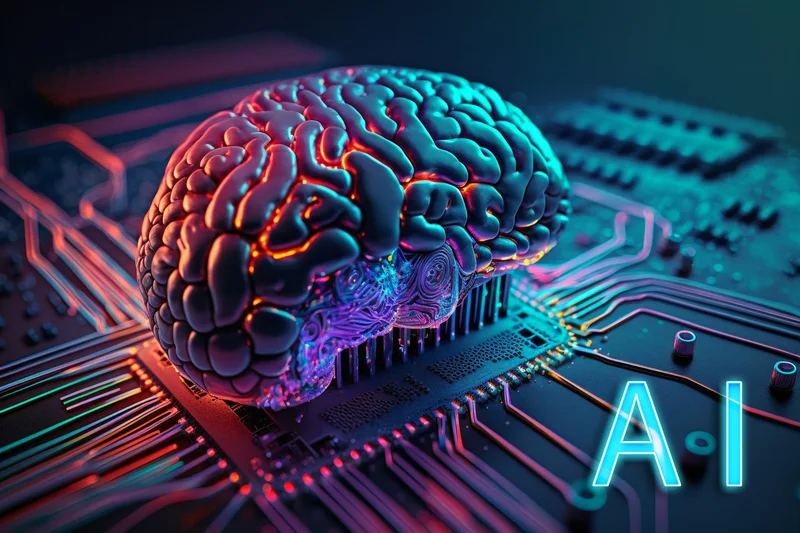Let's cut the crap. Everyone breathlessly hyping up the "AI revolution" in art and writing is either selling you something or has the creative depth of a teaspoon. I keep hearing about the dawn of a new era, about how these large language models and image generators are unlocking human potential.
Bullshit. What we’re witnessing isn't a creative explosion. It’s the birth of the world’s most efficient plagiarism machine.
It’s a high-tech collage artist, slicing up a century of human art, music, and writing, and then stitching it back together into a technically perfect, emotionally hollow Frankenstein’s monster. And we, the slack-jawed audience, are supposed to applaud because the stitches are invisible.
The Glorified Remix Machine
I’ve spent weeks messing with these platforms. I’ve seen the photorealistic astronauts riding horses on Mars, the epic fantasy landscapes, the poems written in the style of dead poets. And I’ll admit, it’s a technological marvel. No, 'marvel' is too generous—it's a stunning feat of engineering. The code behind it is brilliant.
But the output? It's a ghost. It's a perfect echo in a canyon that has no original sound.
Think of it like this: AI is a master chef who has been given access to every cookbook ever written. It can combine Julia Child’s techniques with Gordon Ramsay’s plating and Anthony Bourdain’s ingredients. It can produce a technically flawless dish that looks and tastes exactly like something a human would make. But here’s the catch: it can never invent a new ingredient. It can't imagine a flavor that doesn't already exist in its database. It can’t have a sudden, inexplicable flash of inspiration while walking down the street that leads it to pair chocolate with chili. Why? Because it has never tasted anything. It has no memory of a grandmother’s cooking, no context, no soul.
It’s just patterns. A vast, complex, and stunningly fast pattern-matching engine. So when it "creates" a picture of a sad robot in the rain, it’s not feeling sadness or understanding rain. It’s statistically assembling pixels based on a billion images of "sadness" and "rain" that we, the humans, created and uploaded. So who is the real artist here? The person typing the prompt, or the millions of artists whose work was scraped without permission to build the machine in the first place?

Our Collective Amnesia About 'Originality'
Maybe the real problem isn't the machine. Maybe it's us. We've been conditioned for years to accept mediocrity. We live in a world of endless movie remakes, algorithmically generated pop songs that all sound the same, and corporate logos so bland they look like they were designed by a committee of beige-wearing accountants. We've been drowning in "content" for so long that we've forgotten what "art" feels like.
This ain't the dawn of a new age of creativity. It’s the logical endpoint of the content farm. The goal isn't to inspire, it's to fill a space, and if a robot can do it for pennies on the dollar...
I saw a marketing agency bragging the other day about how they replaced their graphic designers with an image generator. They were so proud. They’d cut costs and increased output by 500%. And the images they showed were just…nothing. A smiling, ethnically ambiguous group of people in a sterile office, laughing at a laptop. Soulless stock photography, but generated on demand. And offcourse, it’s cheaper. But what are we losing in this relentless pursuit of "efficiency"?
The weird, the jarring, the beautifully imperfect spark of a human hand is being sanded down and polished away by the machine’s obsession with the statistical average. Are we really so desperate for more stuff that we'll accept a soulless echo? Then again, maybe I'm the crazy one here. Maybe this is what everyone actually wants—an endless, predictable stream of perfectly adequate noise.
The Coming Content Tsunami
So what happens next? It’s not hard to see. The internet is about to be flooded. Not just with fake news, but with fake everything. Fake art, fake music, fake blog posts, fake product reviews. A digital tsunami of mediocrity so vast that it will become nearly impossible to find a shoreline of authentic human creation.
Every forum, every comment section, every social media platform will be choked with AI-generated responses, all perfectly coherent and utterly devoid of a point of view. How do you discover a new, struggling artist when their work is buried under a million algorithmically generated images? How do you trust a writer's opinion when you can't be sure it wasn't churned out by a machine fed a series of prompts?
We’re standing at the edge of a very weird, very sterile future. One where the most valuable skill won’t be the ability to create, but the ability to prove that you’re a real human being. A world where authenticity becomes the ultimate luxury good. I just have to wonder, will anyone still be able to afford it? Or even recognize it when they see it?
So, We Get the Art We Deserve?
In the end, maybe the AI isn't the villain. It’s just a mirror. It’s showing us what we’ve become: a culture that values quantity over quality, speed over substance, and imitation over invention. The machine isn't killing creativity. It’s just giving us exactly what we asked for—an endless, cheap, and perfectly hollow reflection of ourselves. And we have no one to blame but us.
